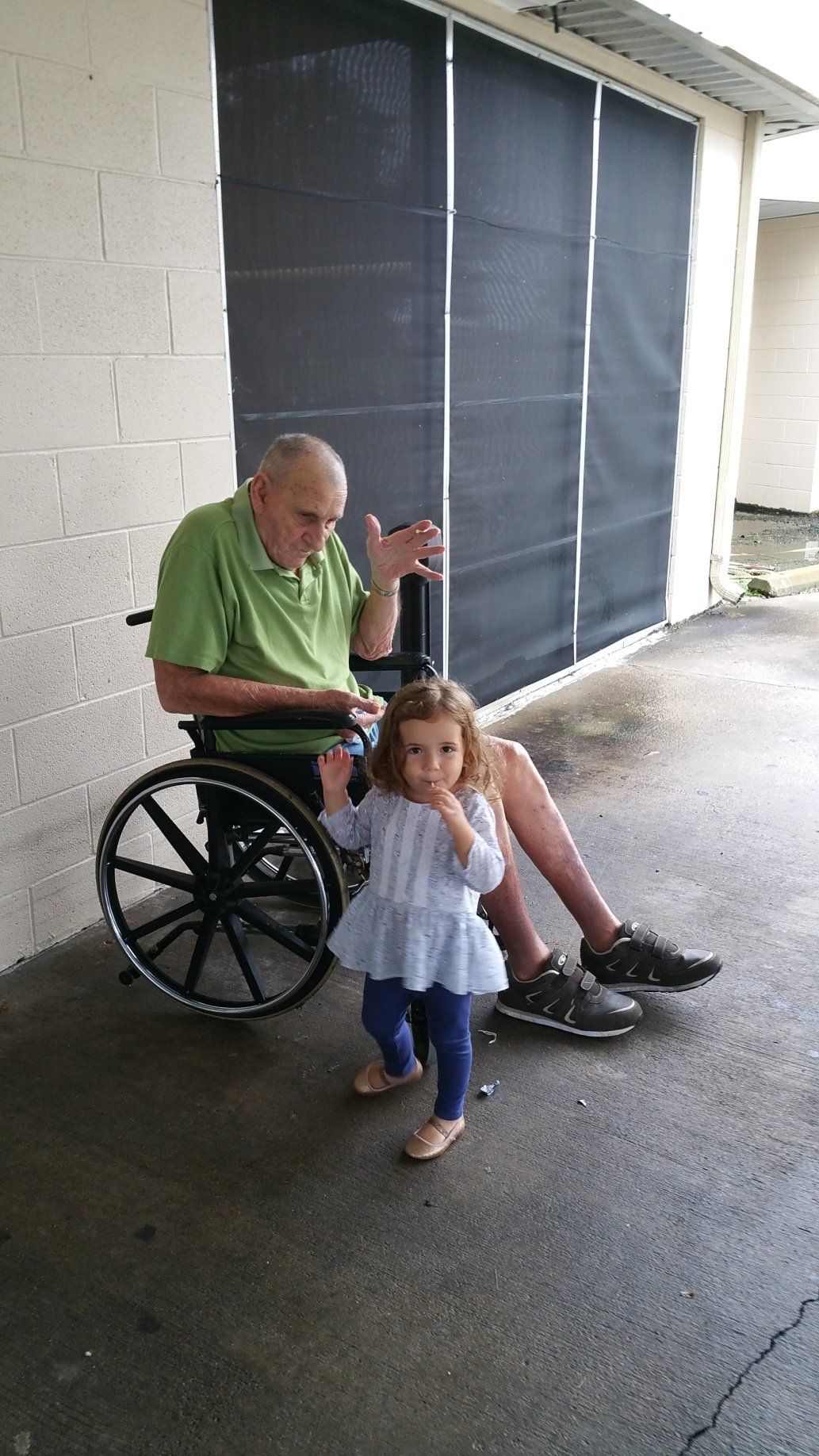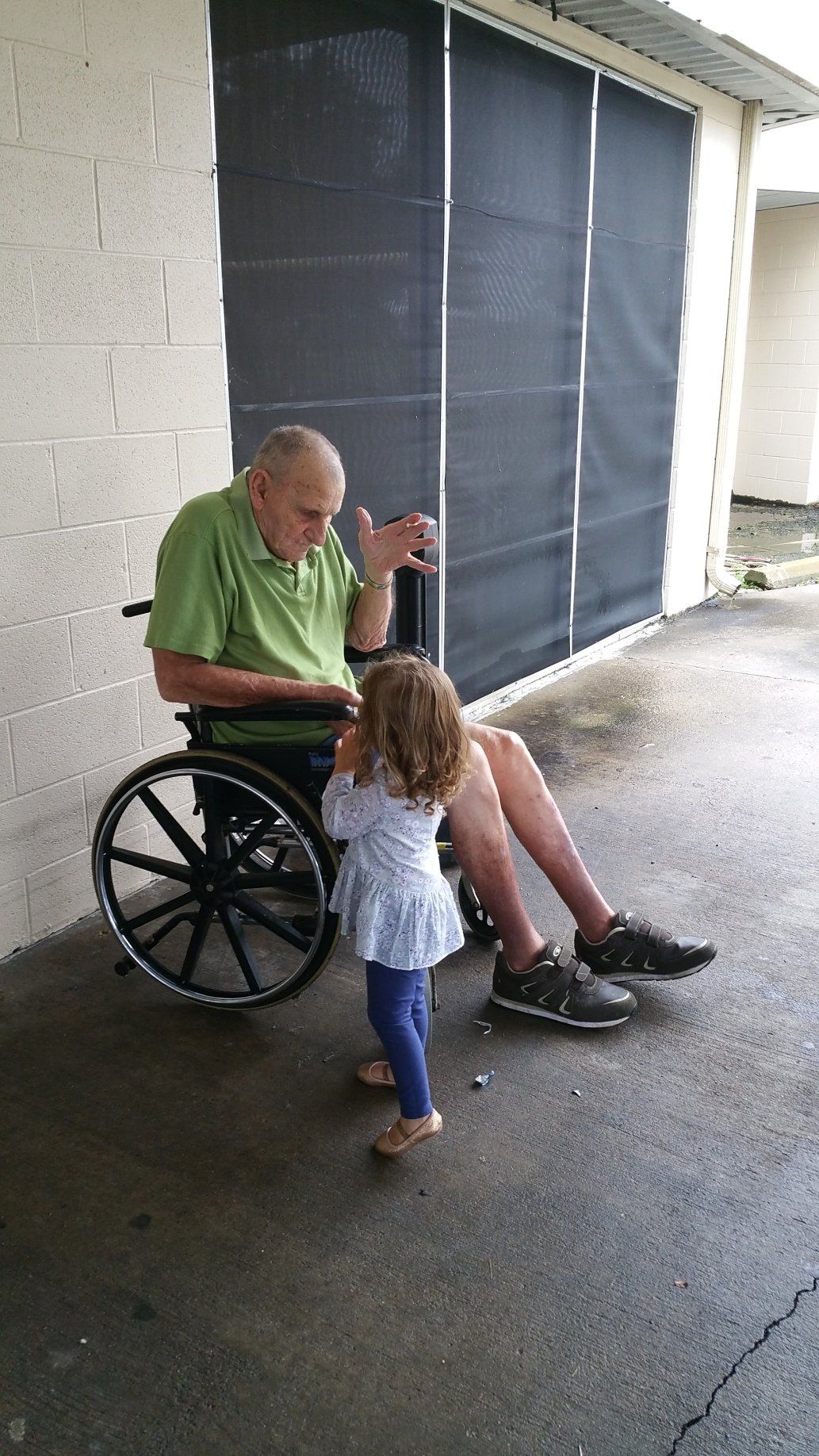St. Agnes Volunteers


Volunteers come in all sizes at St. Agnes Healthcare. Pictured above is a beautiful little girl who visits the residents with her Dad. Every month they come. He carries the bag of goodies and she lovingly hands them out! She is the youngest volunteer and the favorite.
Become a member of our Wonderful Community. Consider Volunteering. Most Volunteers find they get more than they give.
ANYONE INTERESTED IN VOLUNTERING CAN CALL THE ACTIVITY DIRECTOR, DESTIN LEBLANC.
It is wonderful for staff and nursing home residents to have contact with people. Some residents have no one to visit them. If you play a musical instrument, can help in activities such as painting sessions, it is nice to help entertain residents. You will make many new friends.
It is wonderful for staff and nursing home residents to have contact with people. Some residents have no one to visit them. If you play a musical instrument, can help in activities such as painting sessions, it is nice to help entertain residents. You will make many new friends.
Relax!
Many people worry about visiting a nursing facility fearing awkward moments. Invite your friends to visit your loved one and to volunteer with you for some enjoyable activities.
Volunteers Need the Right Mindset
Volunteers Need the Right Mindset
Seniors love to go back to a previous time. Think about their lives when they were younger, past careers or current interests. Even if the visit is mostly you making conversation, you’ll feel better knowing that the discussion is relevant to your older adult. And, do be a Good Listener. Respect their stories and their willingness to share their life with you.
Do you best to avoid bringing up painful memories. But if your loved one wants to talk about something in their past, let them reminisce. Talking through it may help them put things in perspective or come to terms with what happened.
Remember the Greeting!
When you arrive, always begin with a warm greeting. You will set the tone for the visit. Make eye contact, smile and give a warm hug. Don’t just stand towering over someone in a wheelchair or in bed. Sit at a comfortable level for our loved one. Relax and remain calm. Older adults are more easily distracted or agitated by a noisy or busy environment. It also makes it harder for them to hear you and participate in a conversation. When you visit, lower the volume or turn off TVs, radios or other background noise. If you’re in a busy common room, move to a quieter, more private space. If there aren’t any quiet spaces inside, go for a walk outside to enjoy a peaceful moment together.
Effective and respectful communication is essential for any visit. Address and treat your older adult and other residents as adults, not children. Even if they’ve lost physical or mental abilities, they still deserve respect.
Hearing Loss
Hearing loss is very common among older adults, so make sure they can hear you. You might need to raise your voice slightly or and speak clearly. But don’t shout or yell, that’s more difficult to hear.
Do keep the conversation positive, and avoid arguing or upsetting them. This is especially important when visiting seniors with dementia.
Remember the Human Touch!
Many older adults no longer get the benefit of human touch. If you know them well or have gotten their consent, show affection with hugs, holding hands or stroking their arm or back. Older adults can be fragile. Be gentle until you know what suits them.

